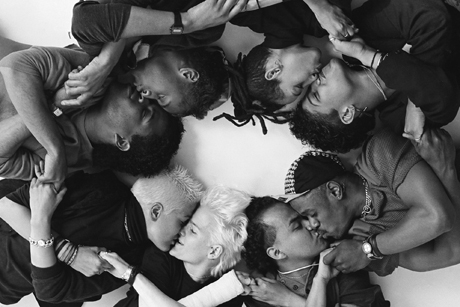Human Sexuality Collection celebrates 25 years
By Gwen Glazer

Cornell will soon host some of the biggest names in sex.
Three guest speakers will participate in the opening event for “Speaking of Sex,” a new exhibition at Cornell University Library celebrating the 25th anniversary of its Human Sexuality Collection.
“Saving Sex” features conversation with Urvashi Vaid, activist, author of “Irresistible Revolution: Confronting Race, Class and the Assumptions of LGBT Politics” and former director of the National Gay and Lesbian Task Force; Susie Bright, the pioneering feminist sex writer and founding editor of lesbian sex magazine “On Our Backs”; and David France, journalist, author and director/producer of the Academy Award-nominated documentary, “How to Survive a Plague” (2012).
Dagmawi Woubshet, associate professor of English at Cornell, will moderate the panel about saving the history of sexuality Tuesday, March 18, from at 5 p.m. in Goldwin Smith Hall’s Lewis Auditorium. A reception will follow in the Division of Rare and Manuscript Collections, Carl A. Kroch Library, level 2B, at 6 p.m. The exhibition will be on view in the Hirshland Gallery during the reception, and donors to the archives will be present.
The event is co-sponsored by the LGBT Resource Center, LGBT Studies, and the Feminist, Gender and Sexuality Studies Program at Cornell.
Susie Bright will return to campus Wednesday, March 19, from 5:30 p.m. to 7:30 p.m. to present “How to Read a Dirty Movie” in Uris Hall Auditorium. That event is co-sponsored by the University Lectures and the Feminist, Gender and Sexuality Studies Program. The presentation will be recorded and added to Bright’s archives, which she donated to Cornell in 2013.
The exhibition runs through National Coming Out Day, Oct. 11, and features rare books, photographs, original artwork, erotica and ephemera related to sexuality and asks how these items can be used to interpret sex now and in the future.
“Archiving sex is vital to our society, and this exhibition brings a wide swath of this history into view,” said Brenda Marston, curator of the Human Sexuality Collection. “Without us making a real effort, our view of the past could keep settling on familiar and comfortable scenes, but at Cornell it’s our job to make sure that we wrest the camera away from the center and capture the stories we don’t always see, so that we’re really preserving the diversity of our culture.”
Gwen Glazer is the staff writer/editor for Cornell University Library.
Media Contact
Get Cornell news delivered right to your inbox.
Subscribe